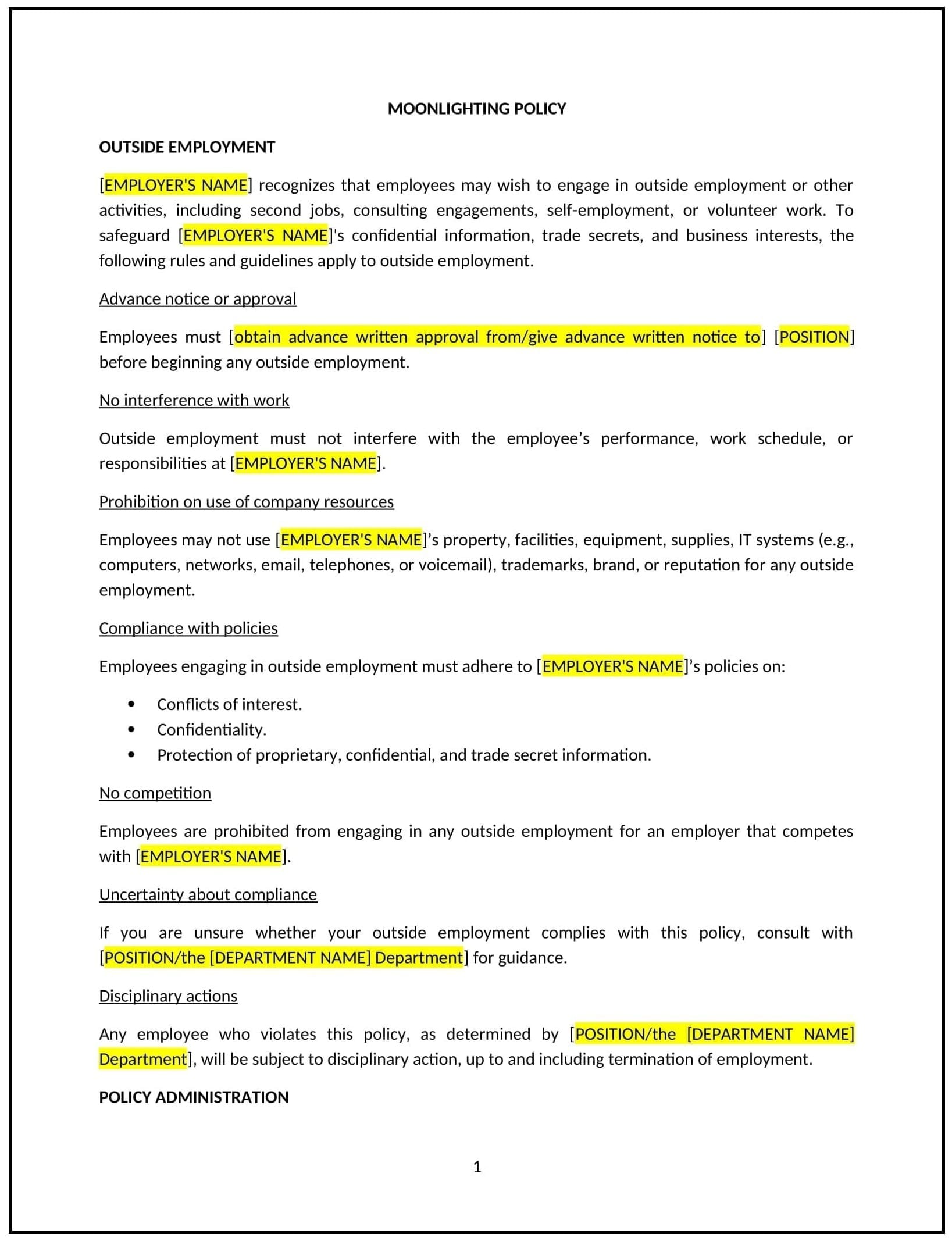Moonlighting policy (South Carolina): Free template
Got contracts to review? While you're here for policies, let Cobrief make contract review effortless—start your free review now.

Customize this template for free
Moonlighting policy (South Carolina)
This moonlighting policy is designed to help South Carolina businesses establish guidelines for employees who hold secondary jobs or engage in outside work. It outlines procedures for disclosing outside employment, addressing potential conflicts of interest, and ensuring that secondary work does not interfere with primary job responsibilities.
By adopting this policy, businesses can maintain productivity, protect confidential information, and align with general best practices for managing outside employment.
How to use this moonlighting policy (South Carolina)
- Define moonlighting: Explain what constitutes moonlighting, such as holding a second job, freelancing, or running a side business.
- Establish disclosure requirements: Provide steps for employees to disclose outside employment, including submitting details about the secondary job.
- Address conflicts of interest: Outline procedures for evaluating whether outside employment conflicts with the employee’s primary job or the business’s interests.
- Set performance expectations: Clarify that secondary work must not interfere with the employee’s primary job responsibilities or performance.
- Train managers: Educate supervisors on handling moonlighting disclosures and addressing potential conflicts.
- Review and update: Assess the policy annually to ensure it aligns with evolving business needs and employment standards.
Benefits of using this moonlighting policy (South Carolina)
This policy offers several advantages for South Carolina businesses:
- Maintains productivity: Ensures employees prioritize their primary job responsibilities over secondary work.
- Protects confidential information: Reduces the risk of sensitive data being shared or misused in outside employment.
- Aligns with best practices: Provides a structured approach to managing moonlighting and conflicts of interest.
- Builds trust: Demonstrates a commitment to transparency and fairness in addressing outside employment.
- Reduces risks: Minimizes the potential for legal disputes or reputational damage related to moonlighting.
Tips for using this moonlighting policy (South Carolina)
- Communicate the policy: Share the policy with employees and include it in the employee handbook.
- Provide training: Educate managers on handling moonlighting disclosures and addressing potential conflicts.
- Monitor adherence: Regularly review moonlighting disclosures to ensure compliance with the policy.
- Address issues promptly: Take corrective action if outside employment conflicts with the employee’s primary job or the business’s interests.
- Update regularly: Assess the policy annually to ensure it aligns with evolving business needs and employment standards.